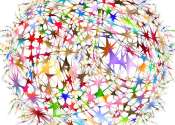NY transit officials confirm cyberattack; say harm limited
Hackers infiltrated computer systems for the Metropolitan Transportation Authority in New York, setting off a scramble to counter a potentially crippling cyberattack against North America's largest transit system, MTA officials ...
Jun 3, 2021
0
4









